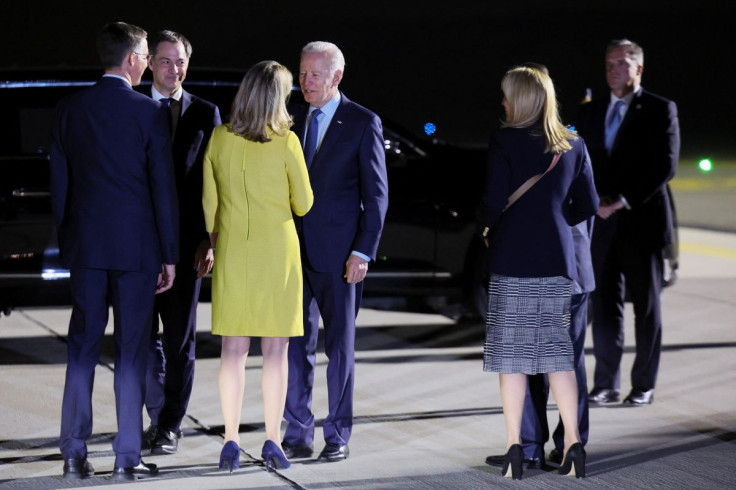US Announces Plans To Accept 100,000 Ukrainian Refugees Amid Biden’s Trip To Europe
The White House on Thursday announced new efforts to help Ukraine in the war with Russia, stating that it would allow as many as 100,000 Ukrainian refugees to enter the U.S. The move comes as the U.S. has yet to provide military commitments to the region.
The Biden administration, which recently approved $13.6 billion in aid to Ukraine, will also provide more than $1 billion in additional funding for humanitarian assistance and $11 billion over the next five years for food security, as Ukraine's wheat production is expected to be hurt in the coming season. The U.S. will also offer “$320 million in democracy and human rights funding to Ukraine and its neighbors.”
The White House said that it expects many Ukrainians to remain in Europe, so it is easier for them to return to Ukraine should they choose. Still, the U.S. will accept “up to 100,000 Ukrainians and others fleeing Russia’s aggression through the full range of legal pathways, including the U.S. Refugee Admissions Program.”
The Biden administration also plans to “expand and develop new programs with a focus on welcoming Ukrainians who have family members in the United States.” The focus of the refugee resettlement efforts in the U.S. will be on “women, children, lesbian, gay, bisexual, transgender and intersex (LGBTQI+) persons, and persons with disabilities.”
CNN reported that the Biden administration will not ask Congress to expand the cap on refugees, saying that many Ukrainians have other avenues outside of applying for refugee status to enter the U.S.
The number of Ukrainians who have fled the region is 3.6 million, according to U.N. estimates. There are around 10 million Ukrainians displaced, including 6.5 million who are internally displaced because of the war.
The U.S. will be working closely with the European Union to ensure that refugee assistance, relocation, resettlement “and other forms of humanitarian admission or transfers, are complementary and provide much-needed support to Ukraine’s neighbors.”
Europe has handled the brunt of the refugee crisis, though it has not been without its struggles. President Joe Biden is in Europe for the remainder of the week to discuss further plans with world leaders and policymakers.

© Copyright IBTimes 2024. All rights reserved.






















